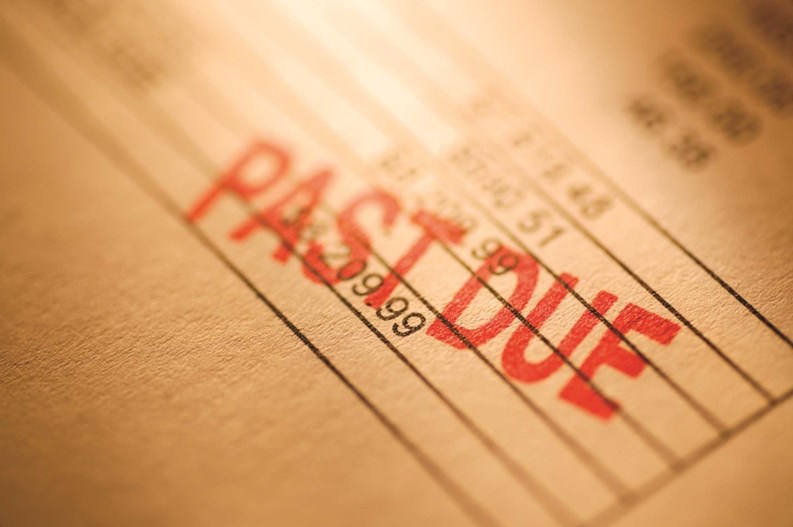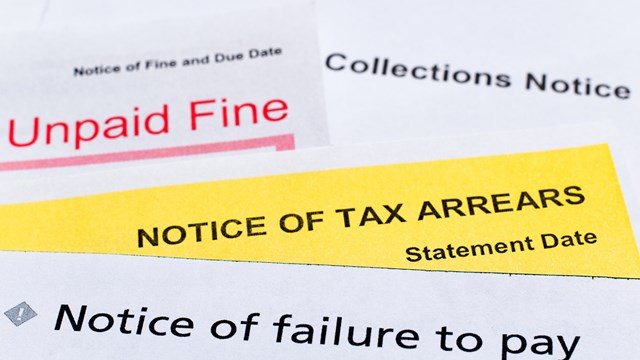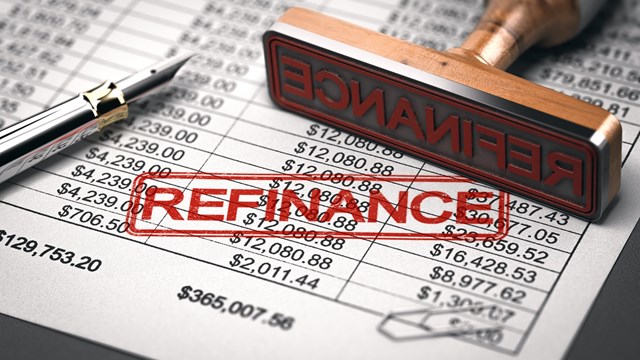In the tough economic environment of the past few years, many condo owners have faced job losses, pay decreases or just financial uncertainty. Unfortunately, this sometimes leads to owners not paying their common charges.
“Obviously, delinquencies are always a problem for associations, but the current state of the economy has certainly escalated this problem,” says Scott K. Penick, Esq. of McGovern Legal Services in New Brunswick. “We have seen quite an increase in delinquencies due to joblessness and underemployment. It’s also resulted in our firm spending a lot of time developing new creative solutions for collecting these delinquencies. The same old formula just doesn’t work these days,” he says.
Barbara Drummond, PCAM, CMCA, president of Prime Management Inc. in Barnegat agrees with Penick. “I am seeing in a lot of cases what when the owners’ debt is greater than the value of the unit that’s when the percentage of people who are in default goes up,” she says. “I have seen a lot of that.”
Unpaid, overdue debt that is not collected can wreak havoc on a condominium association. In small units, it can quickly cause the association to have trouble meeting operating expenses. Even larger associations will eventually feel the effects of the shortfall if multiple units fall into arrears.
“It affects the greater financial health of a building community,” says Steve Elbaz, president of Esquire Management, whose company manages properties in Jersey City and Ocean Township. “When people come to buy an apartment, they review financials and if they see people aren’t paying arrears, it raises red flags and in theory lowers the value of the apartment.”
People Need to Know
Associations should have a written procedure that is disseminated to everyone so that residents know exactly the way things are done, and more importantly, that things are done consistently to all unit owners.
“The governing documents should outline steps that will be taken if a unit owner falls behind with their payments,” says Drummond. “That way it will be clearly stated and there will be a list of steps to follow.”
It’s vital for boards and managers to take a proactive role in collecting common charge arrears to ensure that their condominium associations remain financially stable.
Legally, it’s common property but ethically, it’s private information, so revealing to others that someone is late with their payments is a judgment call on the part of the association.
The First Steps
Each member of a community association is responsible for paying his or her share of the common expenses. Common expenses are things like snow removal, swimming pool maintenance, and lawn care. When a member does not pay his or her share, says Mary W. Barrett, a shareholder attorney with the law offices of Stark & Stark in Lawrenceville, the other members must pay more to subsidize the delinquent member. In the same way, when the association must pay its legal counsel to collect those delinquent maintenance fees, the other members must pay more to subsidize that cost, as well. “Fortunately, the governing documents of most condominium associations, as well as New Jersey law, permit the association to pass on those costs to the person responsible: the delinquent member,” she says.
When someone is late, the first step is usually to send them a letter with a small fine.
“Two months delinquency is when we typically suggest that the association or management refer the matter to us,” says Ronald L. Perl, a partner with the law firm of Hill Wallack LLP in Princeton. “It is important to be aggressive these days; even more important to be imaginative and use such techniques as rent receiverships or alternate theories of recovery, like, for example, when a family member is residing in a unit without paying rent. In such cases, we have been successful in getting judgments against the occupants even though they are neither owners nor tenants.”
Once the second month statement goes unanswered and they don’t pay again, that’s when the association’s lawyers get involved and take a more proactive role in resolving the situation.
“It used to be that a letter from a lawyer would work well, but that has changed a lot. Today, most people just throw the letter into the trash,” Elbaz says. “The only thing in my experience that is truly effective is a foreclosure action.”
Liens and Foreclosures
An association’s best method for striking fear into a delinquent payer to collect common charge arrears is filing a lien against the unit and foreclosing on it. After all, once filed, the lien will protect the condo by blocking the unit owner from selling or refinancing their unit without first paying off his or her arrears to the condo association.
When a condominium's lien is filed, the condominium becomes a secured creditor under the Federal Bankruptcy Code so if the delinquent unit owner files for bankruptcy, the condominium will ultimately get a higher percentage of the debt paid as a secured creditor than if it didn't file a lien.
“The first step is to put a lien on a property. While this sounds onerous, all it does is tell the world you are making a claim for money. Other than that, it doesn’t do too much,” Elbaz says. “It doesn’t create any urgency, even with the lender. There are thousands of mortgages underwater so they wait for the last second to pay common charges.”
“If a second notice goes unanswered to a delinquent owner then the matter should be turned over to an attorney for collection,” adds Drummond, “At that time a lien would be filed against the unit and a suit would be filed in order to collect the debt.”
No one wants to throw anyone out of their home, which is why there are steps to warn and help people who are behind with their payments.
“I like the idea of working out payment arrangements with owners who are late with payments,” says Drummond. “I think if a debt is not too large it often works out. Especially if the debt is only a few months, then a payment arrangement could work out. It’s up to the board to determine if they want to allow that. If the debt becomes burdensome, beyond a few months then it’s best to move ahead with legal procedures.”
Penick acknowledges that it’s important for associations to stay on top of delinquencies. “We encourage associations to establish their own thresholds for turning over delinquent accounts to our office, whether that’s two months or five-hundred dollars or whatever it is, but once a matter is turned over to us, we are aggressive from the outset. Delay is often your worst enemy in collections; so being aggressive is the only viable approach.”
“An association member will be given many opportunities to address his delinquent maintenance fees before significant legal costs begin to accrue,” says Barrett. First, the association will send out reminder letters to the member. After a certain point, if the debt is not paid, the account will be referred to the association’s legal counsel.
“The attorney will typically send out a collection letter. The amount due in the collection letter will include the total debt plus a small amount of legal fees to review the file, calculate the amounts due, and prepare the letter. If, after 30 days, the member has not paid the account or made arrangements to pay it, further action must be taken such as recording a lien against the unit and filing collection litigation.”
If the letter from the lawyer doesn’t do the trick, at this point, legal fees start to be significant. Expenses include a title search, preparation of a summons, a court filing fee, attorney fees and an appraisal. That can easily range from $1,500 to $3,000 in the state of New Jersey.
And, each time, says Barrett, the association’s legal counsel must perform work to collect the delinquent maintenance fees, the association will charge these fees to the member’s account. Legal fees will continue to accrue against the member’s account until the matter is resolved and all amounts due are paid. Thus, while a member may believe his maintenance fees total only a couple thousand dollars, the legal fees may eventually equal or exceed that amount. The association’s board of directors has an obligation to the association and all of the members who pay their fees each month to see that this amount is recovered as soon as possible.
The end result if the bank does not intercede on behalf of the homeowner could very well be a foreclosure auction.
Elbaz agrees that when people are having a difficult time paying, contacting the management company or board to explain their circumstances can at least start the process. Of course, that doesn’t always happen and more often than not, people refuse to pay anything.
“It is important to assert the association’s lien rights so that if the lender begins foreclosure or there is a bankruptcy filing, we already have a lien of record,” says Perl. “It gives the association a bit more leverage as a second creditor.”
Cause and Effect
Even the best run condos will most likely face this issue eventually and it’s important that there is a plan in place to make up for the missing money.
“What they may have to do is stop paying bills or pay them late,” Elbaz says. “That means that when you call the plumber late at night to come out and fix the boiler, and you owe him money, he’s not going to come.”
Other effects of non-payers are that the association may need to stop non-essential services like landscaping, painting or even shut down a pool if the arrears situation gets tight. More extreme boards will do assessments or raise common charges to make up for the shortfall.
Another option is for members of the board or other residents stepping up and prepaying future charges. Understanding that the money will eventually come in via the foreclosure, this is one vehicle to keep the accounting solid. However, it’s not always easy to get people to fork over more money than they need.
Keep in mind, that a condo association expecting a certain level of collection to run its budget and the money does not come in, things can get problematic in a hurry. That’s why an aggressive collection policy is important to keep disasters from happening.
Keith Loria is a freelance writer and a frequent contributor to The New Jersey Cooperator. Staff Writer Christy Smith-Sloman contributed to this article.







Leave a Comment